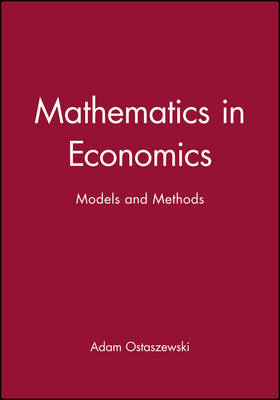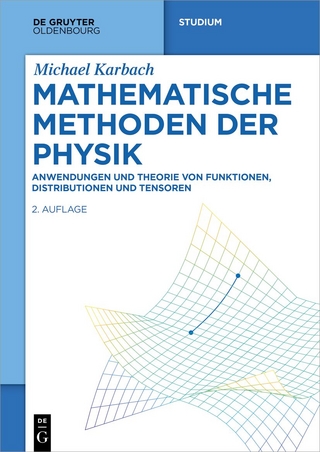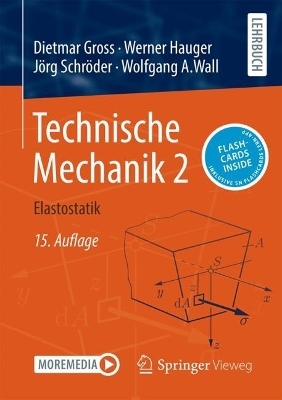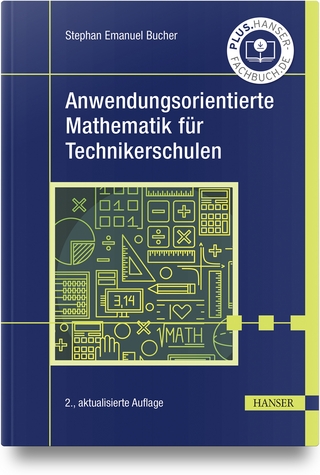
Mathematics
A Simple Tool for Geologists
Seiten
2000
|
2nd edition
Wiley-Blackwell (Verlag)
978-0-632-05345-2 (ISBN)
Wiley-Blackwell (Verlag)
978-0-632-05345-2 (ISBN)
This work aims to teach simple mathematics using geological examples to illustrate mathematical ideas. This approach emphasizes the relevance of mathematics to geology, helps to motivate the reader and gives examples of mathematical concepts in a context familiar to the reader.
This book is for students who did not follow mathematics through to the end of their school careers, and graduates and professionals who are looking for a refresher course. This new edition contains many new problems and also has associated spreadsheets designed to improve students' understanding. These spreadsheets can also be used to solve many of the problems students are likely to encounter during the remainder of their geological careers.
The book aims to teach simple mathematics using geological examples to illustrate mathematical ideas. This approach emphasizes the relevance of mathematics to geology, helps to motivate the reader and gives examples of mathematical concepts in a context familiar to the reader. With an increasing use of computers and quantitative methods in all aspects of geology it is vital that geologists be seen as numerate as their colleagues in other physical sciences. The book begins by discussing basic tools such as the use of symbols to represent geological quantities and the use of scientific notation for expressing very large and very small numbers. Simple functional relationships between geological variables are then covered (for example, straight lines, polynomials, logarithms) followed by chapters on algebraic manipulations. The mid-part of the book is devoted to trigonometry (including an introduction to vectors) and statistics. The last two chapters give an introduction to differential and integral calculus. The book is prepared with a large number of worked examples and problems for the students to attempt themselves. Answers to all the questions are given at the end of the book.
This book is for students who did not follow mathematics through to the end of their school careers, and graduates and professionals who are looking for a refresher course. This new edition contains many new problems and also has associated spreadsheets designed to improve students' understanding. These spreadsheets can also be used to solve many of the problems students are likely to encounter during the remainder of their geological careers.
The book aims to teach simple mathematics using geological examples to illustrate mathematical ideas. This approach emphasizes the relevance of mathematics to geology, helps to motivate the reader and gives examples of mathematical concepts in a context familiar to the reader. With an increasing use of computers and quantitative methods in all aspects of geology it is vital that geologists be seen as numerate as their colleagues in other physical sciences. The book begins by discussing basic tools such as the use of symbols to represent geological quantities and the use of scientific notation for expressing very large and very small numbers. Simple functional relationships between geological variables are then covered (for example, straight lines, polynomials, logarithms) followed by chapters on algebraic manipulations. The mid-part of the book is devoted to trigonometry (including an introduction to vectors) and statistics. The last two chapters give an introduction to differential and integral calculus. The book is prepared with a large number of worked examples and problems for the students to attempt themselves. Answers to all the questions are given at the end of the book.
David Waltham obtained a first-class degree and a PhD in Physics before moving into the oil industry in the early 1980s. This industrial experience led to his appointment, in 1986, as a lecturer at Royal Holloway, University of London, where he became Head of Earth Sciences from 2008-2012.
Preface. 1. Mathematics as a tool for solving geological problems.
2. Common relationships between geological variables.
3. Equations and how to manipulate them.
4. More advanced equation manipulation.
5. Trigonometry.
6. More about graphs.
7. Statistics.
8. Differential calculus.
9. Integral calculus.
Appendix A - useful equations.
Appendix B - answers to problems.
Index
| Erscheint lt. Verlag | 21.2.2000 |
|---|---|
| Verlagsort | Hoboken |
| Sprache | englisch |
| Maße | 173 x 246 mm |
| Gewicht | 454 g |
| Themenwelt | Mathematik / Informatik ► Mathematik ► Angewandte Mathematik |
| Naturwissenschaften ► Geowissenschaften ► Geologie | |
| ISBN-10 | 0-632-05345-3 / 0632053453 |
| ISBN-13 | 978-0-632-05345-2 / 9780632053452 |
| Zustand | Neuware |
| Haben Sie eine Frage zum Produkt? |
Mehr entdecken
aus dem Bereich
aus dem Bereich
Anwendungen und Theorie von Funktionen, Distributionen und Tensoren
Buch | Softcover (2023)
De Gruyter Oldenbourg (Verlag)
69,95 €
Buch | Hardcover (2024)
Hanser (Verlag)
39,99 €


